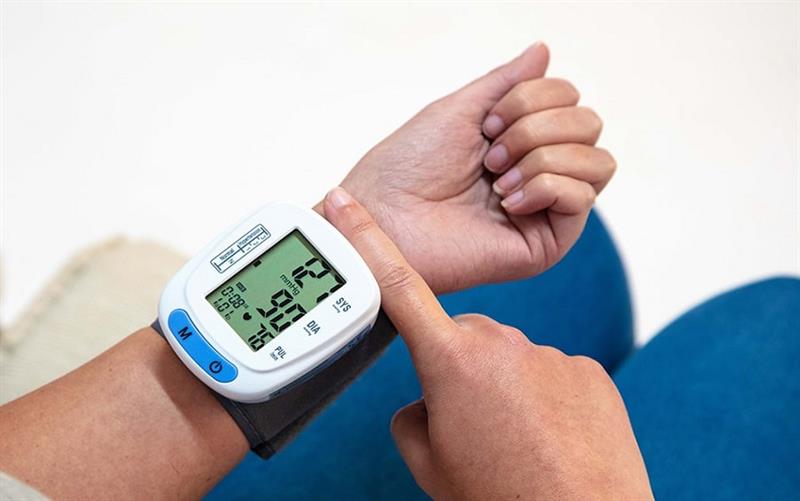
High blood pressure, or hypertension, is a common health concern affecting millions worldwide. Left unmanaged, it can lead to severe health complications such as heart disease, stroke, and kidney problems. However, the good news is that there are effective strategies to quickly lower blood pressure and promote overall cardiovascular health.
Lowering blood pressure quickly is achievable through lifestyle modifications and healthy habits. By adopting a heart-healthy diet, engaging in regular physical activity, managing stress, limiting alcohol consumption, quitting smoking, and monitoring your blood pressure, you can take control of your cardiovascular health and reduce your risk of hypertension-related complications. Remember to consult with your healthcare provider before making any significant changes to your lifestyle or starting a new exercise regimen. With dedication and commitment, you can transition from high blood pressure to a healthier, more vibrant life.
Lowering blood pressure quickly and effectively requires a comprehensive approach that combines healthy lifestyle habits, dietary changes, and, when necessary, medical intervention. By adopting a heart-healthy diet, engaging in regular exercise, managing stress, limiting alcohol and caffeine intake, prioritizing sleep, and staying hydrated, you can take proactive steps to reduce your blood pressure levels and improve your overall cardiovascular health.
1. Adopt a Heart-Healthy Diet:
Eating a diet rich in fruits, vegetables, whole grains, and lean proteins can significantly impact your blood pressure. Incorporate foods that are low in sodium and high in potassium, such as bananas, spinach, and sweet potatoes. Reduce your intake of processed foods, saturated fats, and sugary beverages, which can contribute to hypertension.
2. Get Moving:
Regular physical activity is essential for maintaining healthy blood pressure levels. Aim for at least 30 minutes of moderate exercise most days of the week. Activities like brisk walking, swimming, cycling, or dancing can help lower blood pressure and improve overall cardiovascular fitness.
3. Manage Stress:
Chronic stress can elevate blood pressure levels over time. Incorporate stress-reducing activities into your daily routine, such as meditation, deep breathing exercises, yoga, or spending time in nature. Finding healthy ways to cope with stress can have a positive impact on your blood pressure and overall well-being.
4. Limit Alcohol Consumption:
Excessive alcohol intake can raise blood pressure and contribute to other health problems. If you choose to drink, do so in moderation. For men, this means no more than two drinks per day, and for women, no more than one drink per day.
5. Quit Smoking:
Smoking not only damages your lungs but also increases your risk of developing high blood pressure and cardiovascular disease. Quitting smoking is one of the best things you can do for your heart health. Seek support from friends, family, or healthcare professionals to help you kick the habit for good.
6. Monitor Your Blood Pressure:
Regularly monitoring your blood pressure at home can help you track your progress and make necessary adjustments to your lifestyle. Invest in a reliable blood pressure monitor and follow your healthcare provider's recommendations for tracking and managing your blood pressure levels.
7. Maintain a Healthy Weight:
Being overweight or obese can increase your risk of developing high blood pressure. Aim to achieve and maintain a healthy weight through a combination of balanced diet and regular exercise. Even modest weight loss can lead to significant improvements in blood pressure levels.
8. Limit Caffeine Intake:
While moderate caffeine consumption is generally safe for most people, excessive intake can temporarily raise blood pressure. Limit your consumption of caffeinated beverages such as coffee, tea, and energy drinks, especially if you're sensitive to caffeine or have high blood pressure.
9. Prioritize Sleep:
Poor sleep quality or insufficient sleep can contribute to elevated blood pressure levels. Aim for seven to eight hours of quality sleep each night. Establish a relaxing bedtime routine, create a comfortable sleep environment, and avoid caffeine and electronic devices before bedtime to improve sleep quality.
10. Incorporate Heart-Healthy Supplements:
Certain supplements may help support cardiovascular health and lower blood pressure. Consult with your healthcare provider before taking any supplements, but some options to consider include omega-3 fatty acids, coenzyme Q10 (CoQ10), magnesium, and garlic extract.
11. Reduce Sodium Intake:
Excess sodium consumption is a known risk factor for high blood pressure. Limit your intake of high-sodium foods such as processed meats, canned soups, and salty snacks. Opt for fresh, whole foods whenever possible, and use herbs, spices, and lemon juice to flavor your meals instead of salt.
12. Stay Hydrated:
Dehydration can cause blood pressure to spike, so it's essential to stay properly hydrated throughout the day. Aim to drink plenty of water and other hydrating fluids, such as herbal tea or infused water. Be mindful of excessive sugary drinks or beverages high in caffeine, which can have adverse effects on blood pressure.